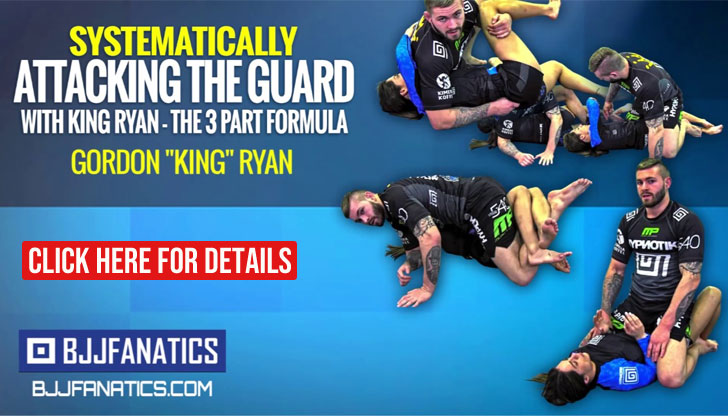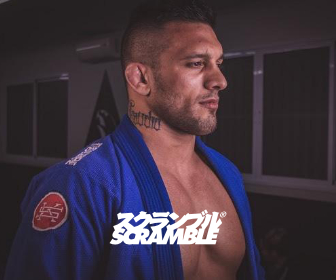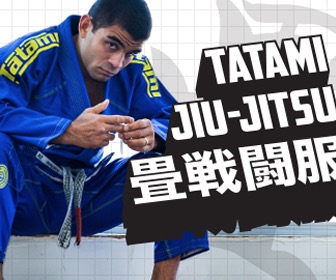One of the trickiest jobs in the sport of Brazilian jiu jitsu is that of the referee. Never loved and often hated, the referee holds tremendous power over the outcome of a tournament and is expected to be 100% accurate on the spot, immediately, at all times. Many tend to forget this is a tough proposition, particularly in big tournaments where these officials spend long hours standing, listening to angry comments from the crowd, frustrated athletes and often coaches. All this while remaining fully focused on the task at hand. This article is not a hit piece on this working force, but an attempt to find trends that may influence a referee’s decision when called to decide the victor of a tied score match.
The reason that drove us to look at the stats on this matter was a recent controversial match between Patrick Gaudio and Keenan Cornelius at the 2018 IBJJF World Jiu Jitsu Championship, which has been highly debated on social media. When we saw the match we believed Keenan deserved the victory. He had the most submission attempts, the most dominant position of the match (back control) and seemed to push the pace for most of this highly entertaining and fairly even clash. The judges felt differently, and for that reason we are here to see what makes a compelling argument to win a ref. decision.
DATA POOL
To research this intricate issue we looked at the past two years of the International Brazilian Jiu Jitsu Federation (IBJJF) World Championships – 2017 + 2018. Selecting the male black belt divisions for that effect, 413 matches of which 29 were ruled by a referee decision (7%).
NATIONALITY
Does it count?
When it comes to referee decisions the common conception is that Brazilians will always have an edge over other nationalities. This idea recently generated a humorous petition on Change.Org asking for Cornelius to change his name to a more Portuguese sounding surname (see here). The reason for this generalization relies mostly on the fact that the majority of referees are Brazilian nationals in the sport’s top tournaments, and large numbers of the federation’s staff have also originated from this South American territory. But does the bias hold any ground?
In very specific terms one could argue for the validity of this assessment. 7 direct clashes observed between USA and Brazil led the referees to decide in favor of the American athlete 2x vs the Brazilians 5x. This changes if we add Canada and Japan to the equation, then those numbers drop making a much more even Brazil 5 vs the World 4.
STATUS QUO
Can you beat the establishment?
Another interesting aspect of BJJ is the academy, the flag an athlete represents. Here again social media often speculates on how strong team leaders may push their influence behind closed doors to get ahead. This does not relate back to the data where most big teams seem pretty even on head to head clashes. There are also smaller team clashes against the juggernauts of the sport, but even here the finger does not appear to be on the scales. Small teams such as Kimura, SAS, BTT, RGA and Ns Brotherhood all own 5 wins against the industry’s big boys, and only one loss.
One interesting part of the investigation was to identify how CheckMat only won 1 of the 6 matches their athletes placed on the hands of the referees. The most uneven result in all the team’s assessed on our research by far.
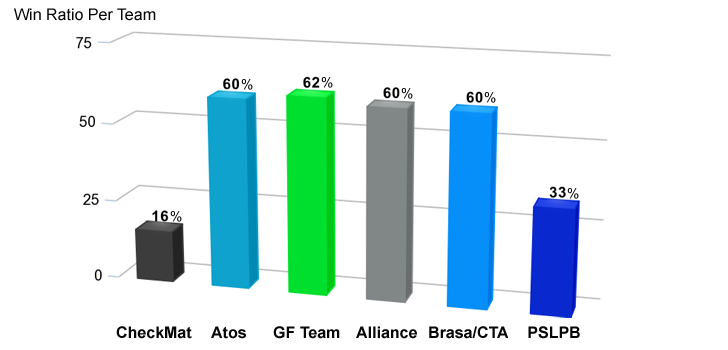
On the other hand, one of the most visible factors we identified was that of individual status. Although limited in our data to the past two years, our findings showed that in 10 matches between former IBJJF world champions against non champions, the victory went for the established grappler on 8 occasions. The only two matches that didn’t make the cut were those of Patrick Gaudio vs Rômulo Barral and Patrick Gaudio vs Tarsis Humphreys. In Barral’s case Gaudio had broken the foot of the legendary Gracie Barra representative with a footlock and the winner was clear.
Gaudio was in fact the athlete with the most matches decided by referee decision over the past two seasons. 5 matches, with 4 going in favor of the GF Team athlete and 1 against – precisely versus a world champion in André Galvão.
POSITIONS OF DOMINANCE
In a tight race that goes the distance with an even score, should the athlete who imposed the most dominant positions have his hand raised?
This was one of the main issues in the aforementioned Cornelius vs Gaudio debate. Keenan had achieved his points by way of sweep and back control (one of the most dominant positions you can conquer in the sport), Gaudio’s points came by way of 3 sweeps.
Although this could/should be a factor, it wasn’t quantified by 2 of the 3 referees that ruled the match. Since there were no other tied matches where a dominant position was clearly imposed, we have no further data to prove or disprove the claim for conquered dominance as a key element in a decision.
Another factor often debated when discussing who should take the win in a decision lays on the roles played by each competitor. The guard versus the passing. The results here were more one sided than expected, with a big portion of wins going to the athlete who spent the majority of the match on top.
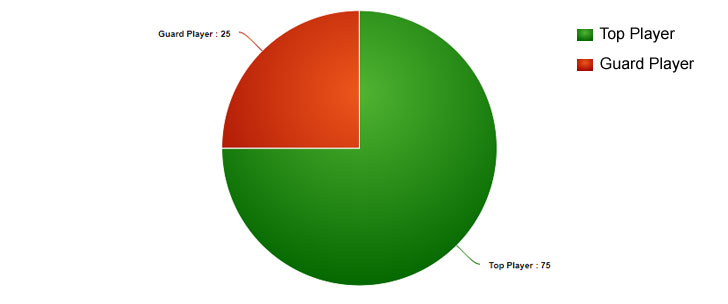
Another component of the “top or bottom” game, the guard pull, showed less relevance to the outcome of a decision. A slight majority of early guard pulls taking the loss at 53%, with 47% being victorious.
ACTION, WHO PUSHES THE PACE?
When it comes to pushing the pace BJJ is unlike other more established grappling sports, namely wrestling where scoring last is a key factor. In our research, there was almost no added value to scoring last with the results showing a mere 54% win ratio to the enforcer of the final scoreboard points.
With regards to submission attempts, this is also not a clear path towards victory as only 60% of athletes who hunted for and got seemingly close to a submission ended up winning the match. One of the stronger cases for winning the decision race seems to be (once again) correlated with the top position: 78% of athletes who attempted to pass the guard ended up winning the match. Below is list on which attempted maneuvers correlated best a hand raise by the IBJJF referees:
– Most Submission Attempts won 60% of matches
– Most Passing Attempts Won 78% of matches
– Most Sweeping Attempts Won: 70% of matches
– Most Takedown Attempts Won: 100% of matches
In even matches, as expected, the athlete who attempted to score the most will increase his chances of victory. Competitors with the most overall offensive attempts generated 78% of hands raised.
While compiling all the data in one piece it seems as though the recipe to victory in a a referee decision runs parallel with conquering top position and attempting to improve this position. This is not without hiccups as some results did stray from these parameters and into unknown/indecipherable territory.




